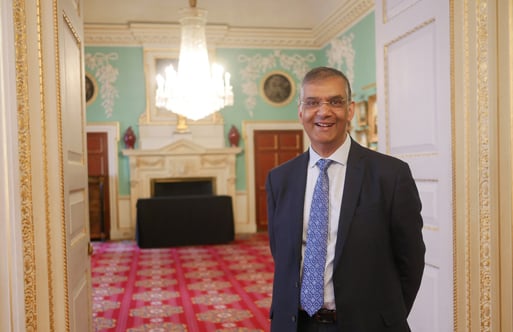Dr Banavar believes that we need to start ‘having a very different relationship with machines. We need to start getting used to having natural interactions with them, and get used to the idea that they’ll be doing a lot of tasks in every aspect of our lives.’
He thinks that the next revolution will involve the augmentation of the human condition through machines. This will be of such magnitude that it’s on a par with the previous industrial revolutions. In fact, Banavar believes that we’re at the beginning of a new era - the ‘cognitive era’.
Mountains of data
Big data’s true value is in the embedded, multi-media context, but we have to first link the data, and then perform a full contextual analysis. This analysis could be done with the help of computers. For example, holistic data, from the biological sciences, could have great impact on health.
Banavar sees such machines as tools to help, to augment human intelligence, through cognitive computing, and sees systems like IBM’s Watson system as being more akin to research assistants. The work IBM is doing now is developing a real partnership between humans and machines; developing a reasoning machine. He believes that once it’s fully realised, cognitive computing will be to decision-making as search engines were to information retrieval.
A vision of the future
In future, everyone who needs expertise will have a cognitive assistant. For example, in healthcare AI can offer protocol options for practitioners; in finance AI could enhance portfolio analysis and risk management, and in education it could deliver personalised programmes for students and teachers.
Dr Banavar believes there’s a need, not just for a deep learning system, but for a reasoning system too.
Wide gauge Vs narrow gauge
Banavar thinks that instead of focussing on developing artificial general intelligence (AGI), where machines can pretty much do everything that humans can, we should define tasks that are relevant to the problems that we want to solve, so we can then deploy machines of ‘narrow AI’ today, rather than wait years for machines to catch up with us. This narrower, engineering approach is more effective and is yielding real results today.
Dr Banavar believes that ‘AI will benefit and advance all humanity, but it needs all of us to work together to realise the promise of AI going forwards.’
Watch the full lecture (recommended)

















